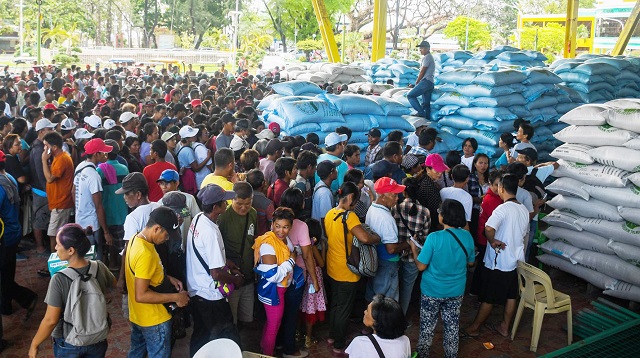
The Department of Agriculture (DA) urges individual farmers to enlist in the Registry System for Basic Sectors in Agriculture (RSBSA) and join organizations to access agriculture-related programs and services including the Rice Competitiveness Enhancement Fund (RCEF).
Under the Rice Tariffication Law (RA 11203), eligible RCEF beneficiaries include farmers, farmworkers, and their dependents who are listed in the RSBSA –an electronic database containing basic information of farmers and fisherfolks, and members of DA-accredited farmer organizations (FOs) such as multipurpose cooperatives, irrigators’ associations, and people’s organizations. Farmers who are already enlisted in the DA-updated RSBSA will be prioritized this 2019 dry season. Meanwhile, those who have just registered will be included in the seed distribution in the succeeding planting season.
“The program does not only aim to reduce the cost of production and increase farmers’ yields, but it also intends to strengthen FOs through agro-enterprise and collective activities. We are partnering with local government units so they can guide the farmers on RSBSA registration and membership to existing or formation of new FOs,” DA said.
The municipal government of Sta. Ignacia, Tarlac and the Municipal Agriculture and Fishery Council helped farmers in their area complete the requirements in time for the RCEF-seed support to be given by October this year.
“We met with the farmer-leaders of the different organizations and cooperatives in Sta. Ignacia so we can identify strategies on obtaining the documents needed for the FO accreditation and thoroughly update the municipal’s RSBSA master list. We hope that every eligible farmer in our locality will receive support so we can simultaneously progress,” James Ocampo, Sta. Ignacia MAFC chairperson said.
To register in the RSBSA, individuals must be 18 years old at the time of registration, a Filipino citizen, and must be a farmer, farm laborer/worker. They must also fill up the RSBSA form which can be acquired through their city or municipal agriculture office or online through the DA website.
Aside from the form, registrants must also present one original and photocopy of any valid identification cards such as SSS/GSIS UMID card, postal ID, TIN card, passport, PRC ID, OWWA/iDOLE card, voter’s ID or certification from the election officer with dry seal, PNP firearms license, senior citizen ID, or valid school ID for students.
For registrants without valid ID, a duly signed barangay certification containing his/her permanent residence may be secured. They must also present proof of farming activity such as evidence of land ownership (land title/ certificate of land ownership/ deed of donation/ lease of agreement), municipal/city/ barangay business permit, or geo-tagged photos of their farm, if possible.
Ocampo affirmed that these requirements are means to ensure that the right people will benefit from the program.
“Getting enlisted in the RSBSA and accredited by the DA would mean that the recipients of the program are legitimate farmers. We can avoid [political] entities from interfering in RCEF, and we can be sure that there is equal distribution of the resources,” he said.
He also added that the accreditation provides easy access for the farmers and their groups to become partners of the department in its agriculture-related initiatives. This, according to Ocampo, brings confidence to the farmers that they will not be left out.
Created through RA 11203, RCEF is a new government program, which aims to help farmers through the P10B-fund covering seed, machine, credit, and extension support to improve the competitiveness of the Filipino rice farmers.
For more information about the processes, please call or text the Farmers’ Contact Center at 0920-946-2474.




